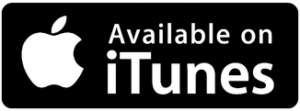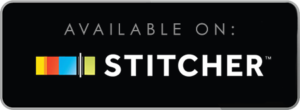Are you someone who is looking to transition into law? In this engaging podcast episode, Jim and Tyson sit down with Bill Gshwind of Minnesota Construction Law, who shares his unique journey into law after a 25-year tenure in business.
In this episode, Jim & Tyson interview Megan Zavieh, with Zavieh Law. Megan is an attorney with a broad range of litigation experience now focusing on attorney defense in the California State Bar disciplinary system. Listen as they go over her business, her strategies and marketing, information products and ethics.
[smart_track_player url="http://traffic.libsyn.com/maximumlawyer/Episode_123.mp3" social_linkedin="true" ]
Topics:
-
- About Megan:
- Everyone of her clients is a Lawyer
- She represents them in state bars proceedings
- Applicants for the state bar and general ethics consulting
- Advice lawyers who are getting creative with the delivery of service
- Started in Big Law but her work and life weren’t compatible
- Launched her practice in tending to represent primarily self represented lawyers
- Consulting services
- Graduated from University of California, Berkeley - School of Law at the age of 21!
- Megan is a Spartan racer
- About Megan:
- “There is something incredibly empowering about doing something that looks way too hard, or just completely impossible when your standing at the front end of it, and then getting to the end and looking back and realizing what you’ve accomplished. It carries over into everything in life…”
- Having lawyers as clients
- They can understand everything quickly
- Intellectual discussions
- Contribute to their own defense
- Partnership in representation
- Running the firm away from California
- From Australia, it used to be a red flag
- Now from Georgia, almost never comes in to the discussion
- Very little travel involved
- How do Lawyers find her
- Google searches; website
- Referrals: reticent to talk about the fact they have a State Bar problem
- Social media and Podcast
- Information products
- Can be almost any consumable media content, that does not involve you talking individually to clients
- Videos, online course, a book, etc.
- Educating people about their legal needs and legal issues
- The Playbook: The California Bar Discipline System Practice Guide
- A guide to help people who are representing themselves through the California State Bar discipline process
- A few forms
- Videos
- Forum
- Library
- Unlimited scale
- How should people get started
- Megan’s talk: Legal Technology Track: Growing Your Practice Through Digital Information Products
- BRAINSTORM
- Starting techniques and strategies
- Feedback from people who’ve downloaded the product
- Need for consulting and guidance
- The Podcast
- A Legal Ethics podcast
- Interviews from all sorts of products
- The profession and ethics
- Podcasting is an amazing media
- Dive into topics
- Meet great people
- Great conversations
The Maximum Lawyer Conference 2019 is coming!
Thanks so much for listening to the show! If you want to know more about this and keep on maximizing your firm, please join our Facebook Group or like us on Facebook and comment!
You can also go to MaximumLawyer.com or, if you’d prefer, email us at: [email protected]
Jim’s hack: Google released some new tools that allow you to assess how your website is doing. https://web.dev/measure, fixes and scores.
Megan’s hack: Read your Ethics Rule before the end of the year!
Tyson’s tip: Go out and do some research on Alexa. Get involved.
//
Do you want to get on the show? Shoot us an email or message us!
The Maximum Lawyer Podcast. Partner up, and maximize your firm.
Guild Membership
Free Access to Stage 1 of Maximum Lawyer in Minimum Time
Sign Up Today!Customer Reviews
4.9 out of 5
Join Our Facebook Group
Enjoy Exclusive Access To Stage One Of The Maximum Lawyer In Minimum Time Course
Privacy Policy
This privacy policy has been compiled to better serve those who are concerned with how their ‘Personally Identifiable Information’ (PII) is being used online. PII, as described in US privacy law and information security, is information that can be used on its own or with other information to identify, contact, or locate a single person, or to identify an individual in context.
Please read our privacy policy carefully to get a clear understanding of how we collect, use, protect or otherwise handle your Personally Identifiable Information in accordance with our website.
What personal information do we collect from the people that visit our blog, website or app?
When ordering or registering on our site, as appropriate, you may be asked to enter your name, email address or other details to help you with your experience.
When do we collect information?
We collect information from you when you register on our site, place an order, subscribe to a newsletter, Use Live Chat, Open a Support Ticket or enter information on our site.
How do we use your information?
We may use the information we collect from you when you register, make a purchase, sign up for our newsletter, respond to a survey or marketing communication, surf the website, or use certain other site features in the following ways:
- To personalize your experience and to allow us to deliver the type of content and product offerings in which you are most interested.
- To improve our website in order to better serve you.
- To allow us to better service you in responding to your customer service requests.
- To quickly process your transactions.
- To send periodic emails regarding your order or other products and services.
- To follow up with them after correspondence (live chat, email or phone inquiries)







